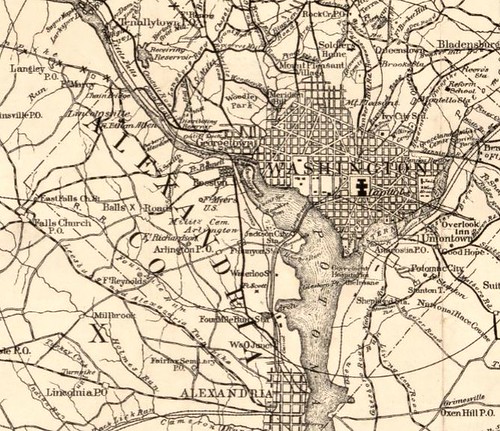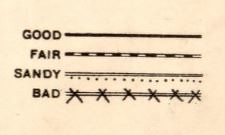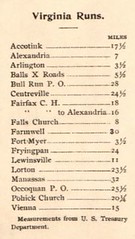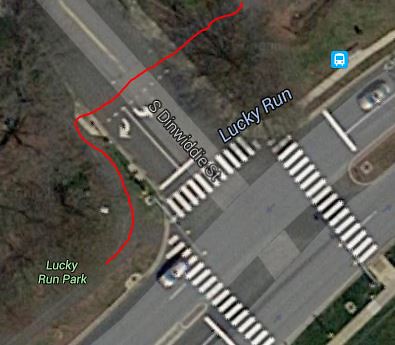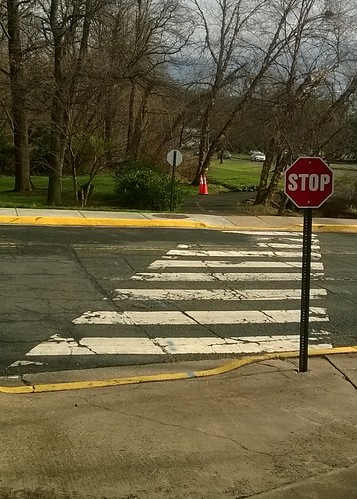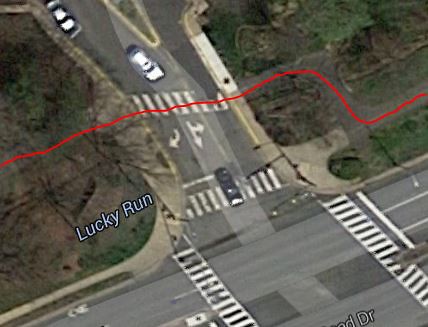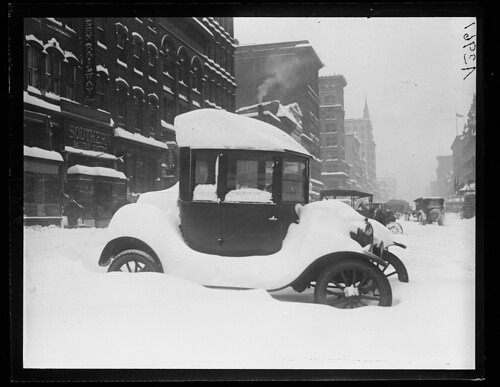
Snow in Washington DC, January 1922 (from the Library of Congress)
Last weekend two feet of snow (give or take) fell from the sky, closing the government completely for several days, then various kinds of delayed arrival and the like through Friday. I teleworked through Thursday, returning to work on Friday - using Metro.
I am not crazy about using Metro, but I didn't feel like experimenting with the snow on the trails that day.
Yesterday, Saturday, I went about a third of the way to work, to see what conditions are like on the bike trails between my house and the Potomac river where I cross the 14th street bridge into DC.
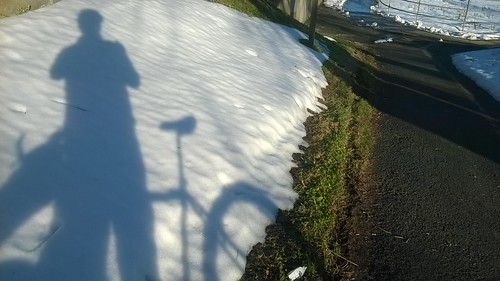
Bicycle trail plowed by Arlington County
The trail for about a half mile from my house to the Four Mile Run Trail was not plowed, but it was mostly clear anyway. The Four Mile Run trail near Shirlington was plowed, continuing on in all the way to the Potomac near the south end of National Airport. Arlington County uses a Gator or something similar; it is difficult for them to stay on the trail consistently, as you can see by the tread marks in the grass where the small plow was off the trail for a while.
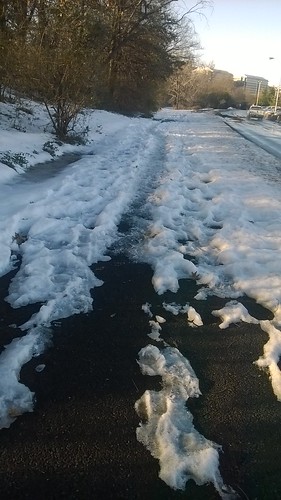
Mt Vernon trail near south end of National Airport
Once the trail leaves Arlington County and runs into the Mt Vernon trail, the plowing stops, and the conditions are much more mixed - that is, there is more snow and ice. I can route myself through Crystal City to avoid some of this; I'll see how it goes tomorrow.

